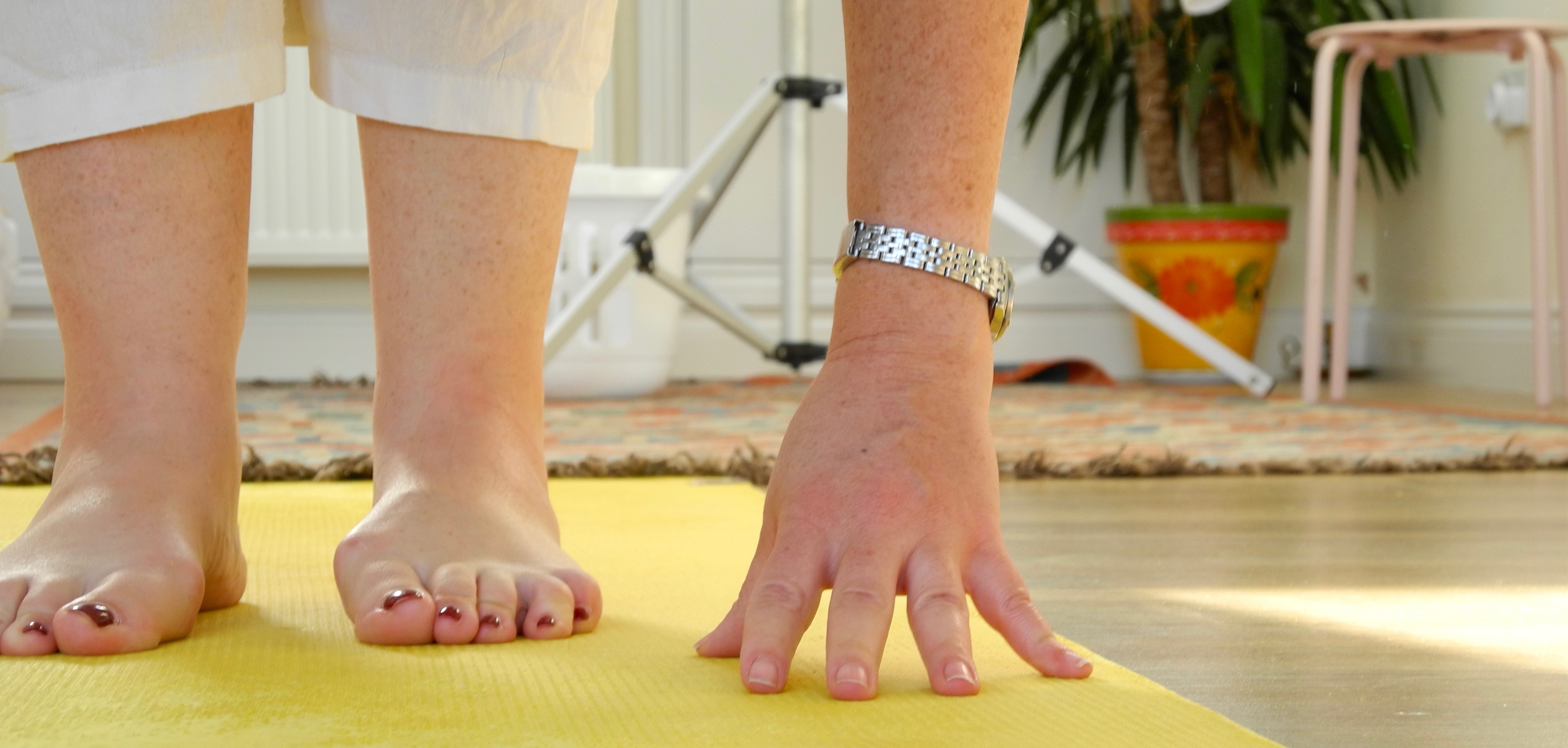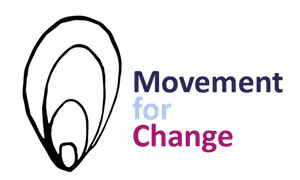
Tell me about your contemplative practice
I practise in the morning. With my time, if I want to do it, it is only first thing in the morning! Sometimes do it on my own, but mostly I follow a teacher using an online video. I really like a kundalini teacher called Kia Miller, who has videos on a yoga platform. It really works on the connection between body mind and spirit. I find that if my mind is busy then I need more of the slower pace. For me when the mind is quiet and I’m in the here and now, I’m ready to go for something intense.
Depending on how alert and quiet I feel inside I sometimes just want to do what comes up in the moment to me, but most times, I want to follow the guidance of a teacher. After that, I practise yoga on my own. I would do normally five or six sun salutations and some more sitting postures. I feel like I’m wearing the wrong top for being photographed!
And your changemaking practice?
My choice of work was always there, before these practices. Something inherent in me wanted to devote my life, my profession, in an area that has to do with people and with meaningful change. I did child psychology and then I moved further into child protection and working within social care, for many years. But since these values are resonating with me more deeply, my work is not work. It’s a service. The way I approach my work when I am connected with my deepest nature, it’s a service to others.
I feel that seeing it in that way gives me a motivation that doesn’t end – that can go through the politics and the reactivity, the dynamics at play.
How do your practices support each other?
In work with children, you frequently come into contact with awful things. They happen to children primarily by the people who are meant to look after them, and it is very easy to pathologise or demonize people. And sometimes also to pathologise the child. While the intention is noble, this can become yet another force that separates and that judges.
As hard as this may sound, a lot of the time when you work with people who have abused others, if you go beyond how horrible what they’ve done is, and understand them in their own context, then you can begin to see why. And that’s the only way that true healing can take place.
I’m in a leadership position now, so I apply this a lot in my leadership and in the environment I create within my team. I look to see beyond what they’re saying, beyond that anger about a specific case, and to connect with the goodness in what they’re doing. Even if I disagree entirely with how they’ve chosen to deal with the case. It’s work – sometimes it’s emotionally intense – but it works.
I work in a fast-paced environment. I have to make quick decisions. How this plays out in the work environment is that it reduces my reactivity.
And what supports your practice?
I think that my relationship with my partner and my relationship with my child are two areas where I get to practice intensely. I often fail, but that’s also a part of what makes a whole journey worth it. Also the different teachers that have come my way.

Does anything get in the way of your practice?
A very violent inner critic! That resists, judges, compares, and just creates a space of not-good-enough-ness in everything. You know, that I could be a more present mother, and I could be more focused in my work, and I could be a better and kinder partner… Sometimes I I feel suffocated by the fact that after all these years of practice I’m still there.
Like this morning I woke up and the inner critic was just saying a very big hello, it was just like bang in there, and before I knew it I had created a war in my head. And then sometimes weeks ago by, and the inner critic is well rested and quiet somewhere.
When I became a mother I was constantly in a conflict of – how will I compartmentalise my time so I’ve got a couple of hours a week to do my practice? I would get really frustrated when this was not happening, and really upset. Which kind of defeats the point.
And then I slowly realised that doing the yoga postures and sitting in lotus and having quiet meditation time is very important, but it’s one way to practice. And actually being together with Benny, it’s a different kind of practice, because being a baby, he’s a little enlightened being. Looking at him, you can only be in the here and now, and it makes you realise immediately how you are feeling.
What brought you to your practice?
In 2010 I was doing yoga, but it didn’t have a spiritual element at all. My cousin was doing a lot of yoga, and she was talking to me about this teacher. She was doing it for a few years, and she’s a very close person to me, so out of curiosity I went along to a retreat. I was a bit cynical and a bit suspicious of ‘having a teacher’, or anything like that.
I don’t remember every single moment of the retreat, but I remember that at some point I was completely blown away. I had a lot of emotion. I was in a room crying, and telling her how much I loved her, and how I felt this amazing connection. After the retreat I was flying back to England, I remember this feeling that everything is possible. Just this easy flowing connection with everything around me.
It lasted for a few days, that flowing easy state, but the impact was enough to plant a seed. Perhaps it was this first layer – the first realisation that maybe I’m not my thoughts? So since then I’ve been doing retreats, and it’s become something that’s very integral to how I live and how I function in the world. It’s not so much something I have to do, it’s something that – that’s calling me to do it.
What have you learned about changemaking?
I feel that prior to having a spiritual practice I would always be interested in what’s happening in the world, and world affairs, but it would come more from the left part of my brain. Having an opinion, being angry about the injustice in the world, and very intellectual. Whereas now, it’s becoming more felt. It’s a lot more sincere and any areas where I choose to act, I feel like the action is more effective, more meaningful, and more truthful.
